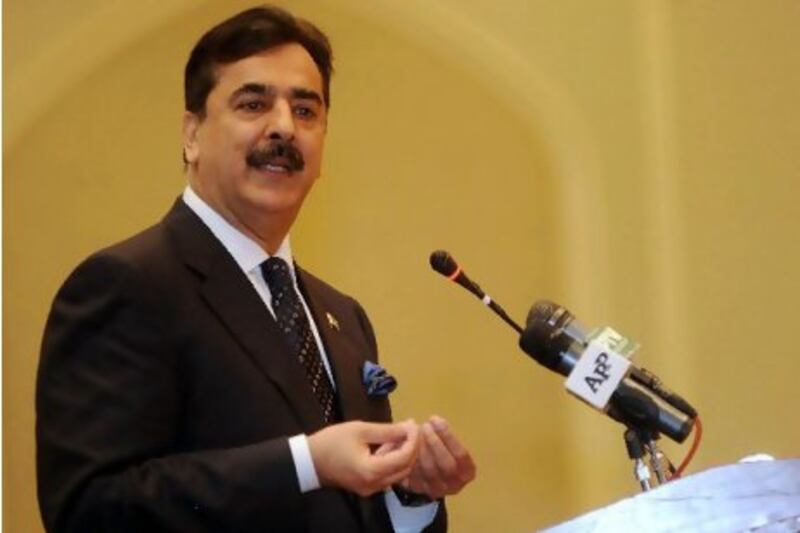ISLAMABAD // The Pakistani Supreme Court yesterday rejected the prime minister's appeal against an indictment on contempt charges. The ruling was the latest development in the tug of war between the civilian rulers and the judiciary.
If convicted, Yousuf Raza Gilani could be removed as prime minister and jailed for up to six months. However, Mr Gilani's ruling coalition could survive as it enjoys a comfortable majority in the parliament.
The Supreme Court on February 1 decided to charge Mr Gilani for refusing to reopen a money-laundering case dating back to the 1990s against the president, Asif Ali Zardari.
The government appealed the decision this week but the Supreme Court led by Chief Justice Iftikhar Chaudhry, who is seen as hostile to Mr Zardari, ruled the case would move forward.
"Prime Minister Yousuf Raza Gilani will appear before the court on February 13 and charges will be framed against him," Mr Gilani's lawyer, Aitzaz Ahsan, told reporters outside the court.
The weak civilian government, which faces multiple problems - from a standoff with the powerful military to a mounting Islamist insurgency and a fragile economy, has been reluctant to write a letter to Swiss authorities to reopen a corruption case against Mr Zardari, saying that he enjoyed constitutional immunity.
Pakistan, which won independence in 1947, has been ruled by the military for most of its history. Mr Zardari's government, which has been in power since 2008, is its longest-serving civilian administration.
Speculation gripped Pakistan last month after Mr Gilani accused the military for running a "state within a state" and expressed fears that conspiracies were being hatched to topple the government.
Pakistan's army chief, General Ashfaq Kayani, arguably the most powerful man in the country, denied speculation that he was planning to stage a coup.
Though a military coup seems unlikely, analysts say the government will be forced to call an election earlier than it is due in 2013, possibly later this year.





